#kyivan rus
Text
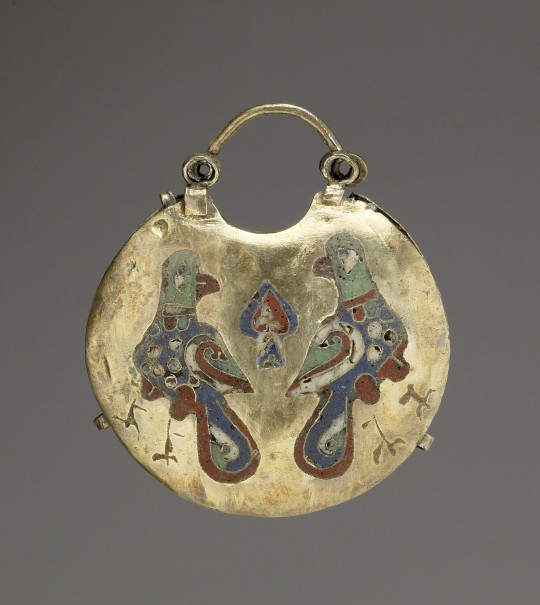
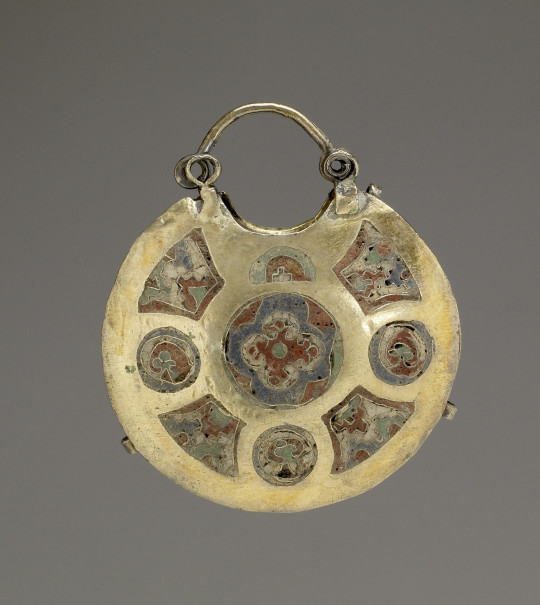
Gold temple pendant with two birds, Kyivan Rus, 12th century
from The Walters Art Museum
241 notes
·
View notes
Text


The sword of the blacksmith Liudota is an archaeological monument of the princely era of Kyivan Rus, a decorated sword with an inscription "коваль Людота". The sword dates back to the first half of the 11th century. The sword was found in 1890 during farm work in the village of Khvoshchove, near the city of Myrhorod, Poltava region.
N.B. In the russian language, the blacksmith is "кузнец". In Belaruthian, it's "каваль".
P.S. The moral of the story is to place watermarks on your art. XD
#Ukrainian language existed muuuuuch earlier than russian#archeology#swords#kyivan rus#Ukraine#history
312 notes
·
View notes
Text
I'm seriously going mental over this Rus' and Russia distinction. The precise reason Peter the Great changed the name from Moscovy to the Russian Empire was to establish a direct connection to the rich history of Kyivan Rus' and assert the claim as the sole true descendant of the Rurik dynasty. His thought process went like this: to build a formidable empire, a strong historical foundation is needed. Moscow's ties to the Mongols were not as significant as the history of the Kyivan state, which prior to the Mongol invasion of 1240 was one of the most advanced in Europe and had numerous representatives in various ruling dynasties. Credit must be given; he succeeded in doing so. Even centuries later, I find myself reading, listening, and observing his actions in effect as Russians and Europeans, blindly following the centuries long lies, erase my country's and my people's history.
#Kyivan Rus is a medieval state that put a start two three states of Ukraine Belarus and Russia#three of them after the desintegration of it had a completely different development#but to put an equal sign between russia and rus is to reveal yourself as an incompetent moron#sorry not sorry#and as once was said Ukraine unlike other states don’t have to look for and unceremoniously steal the proof of its history#we just have to look at the stones our cities stand on#history#ukraine#Kyivan Rus
226 notes
·
View notes
Text
Although it is pointless to play on the russian ground of "who is a rightful inheritors of the crown of Kyivan Rus'" because we live in the fucking 21st century and the rules of monarchical inheritance are irrelevant in the modern nation-making, there are still interesting historical parallels to make.
When the founder of Moscow, prince Yuri Dolgoruky first conquered Kyiv, he was initially kicked out by the local elite (and, eventually, was assassinated by them), because Kyivan tradition always assumed involvement of locals in self-governance. On the contrast, the Suzdal' kingdom from which Yuri came, had an autocratic tradition even back then, which Yuri unsuccessfully tried to establish in his newly acquired lands, because of which the local aristocracy, which expected its opinion to be respected, revolved.
And to this day, we see the difference between the political psychology of our two countries. Ukraine still is divided by "local princes" - oligarchs in modern iteration - who accumulate the capital and use the acquired power to push their interests on the governmental level; and in russia the Duma is nothing but a bunch of their despot's yes-men who pantomime an illusion of democracy noone finds believable anymore.
Why of course, yes, Ukraine, and Russia, and Belarus culturally come from the same roots - just like partially Lithuania and Poland - but it would be disingenuous to view Rus' as one monolith that created a "Slavic nation". Ukraine clearly draws more heritage from the Kyivan branch, because duh - Kyiv is still here, I can personally vouch for that. And muscovy's tradition takes root in Novgorod and Suzdal kingdoms, which, while being politically of the same branch, had their own distinguishing features that set them apart, for example, the influence of the Golden Horde, which we do not have.
Medieval Eastern European is so complex, and to simplify it in order to push a certain political agenda of a certain nation with imperialistic ambitions... Idk. The more I learn, the more it doesn't fit, and the more I see the puppeteers' hand behind the scene. I don't understand why other people don't.
100 notes
·
View notes
Text
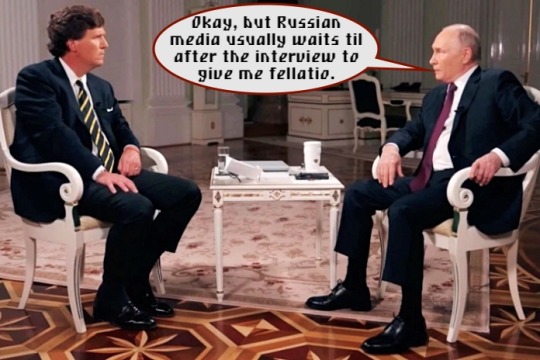
The "interview" was more like a Ted Cruz filibuster – but even less factual.
Putin ranted quite a bit about his self-serving, imperialistic view of Ukrainian history. Russian ethno-nationalists want their Western dupes to think that Ukraine is some sort of offshoot of Russia. The truth is closer to the opposite of that.
What is now Ukraine had a thriving culture for centuries when Moscow was still just a shit hole on the banks of a tributary of a tributary of the Volga River.
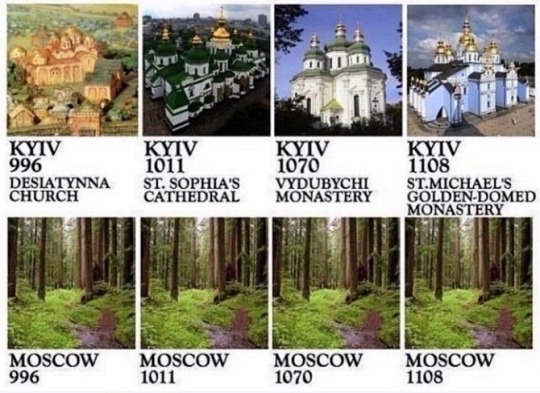
Russia even stole its name from Ukraine.
Stealing History: How Moscovia (Muscovy) is stealing Ukrainian history
Putin used Tucker Carlson to push propaganda as if Tucker were an employee of Russian state TV.
youtube
Putin would never grant an interview to a legit Western journalist. That tells us something about Tucker Carlson.
BONUS TRACK...
Tucker Carlson interview: Fact-checking Putin's 'nonsense' history
#invasion of ukraine#stand with ukraine#russian propaganda#disinformation#tucker carlson#vladimir putin#historical revisionism#russian imperialism#kyivan rus#kyiv#moscow#muscovy#genocide#war crimes#россия#владимир путин#путин хуйло#пропаганда#дезинформация#такер карлсон#рупор путина#добей путина#геноцид#союз постсоветских клептократических ватников#руки прочь от украины!#геть з україни#київ#московія#слава україні!#героям слава!
42 notes
·
View notes
Text
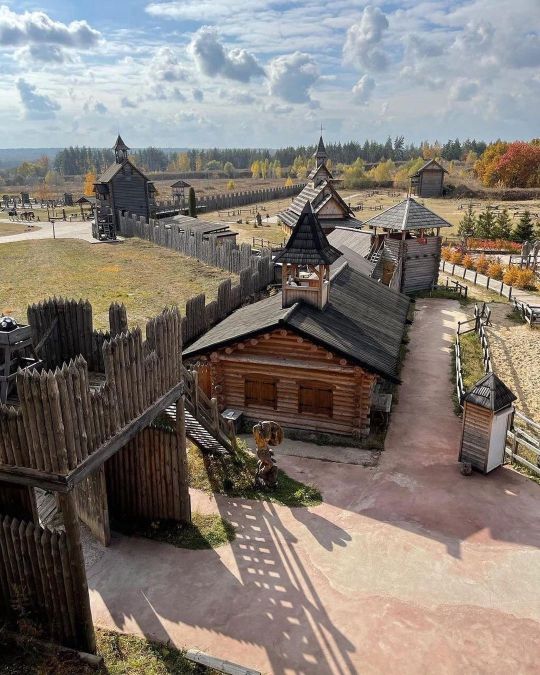
Kyivan Rus Park (Kopachiv, Kyiv Oblast) 🍂
67 notes
·
View notes
Text

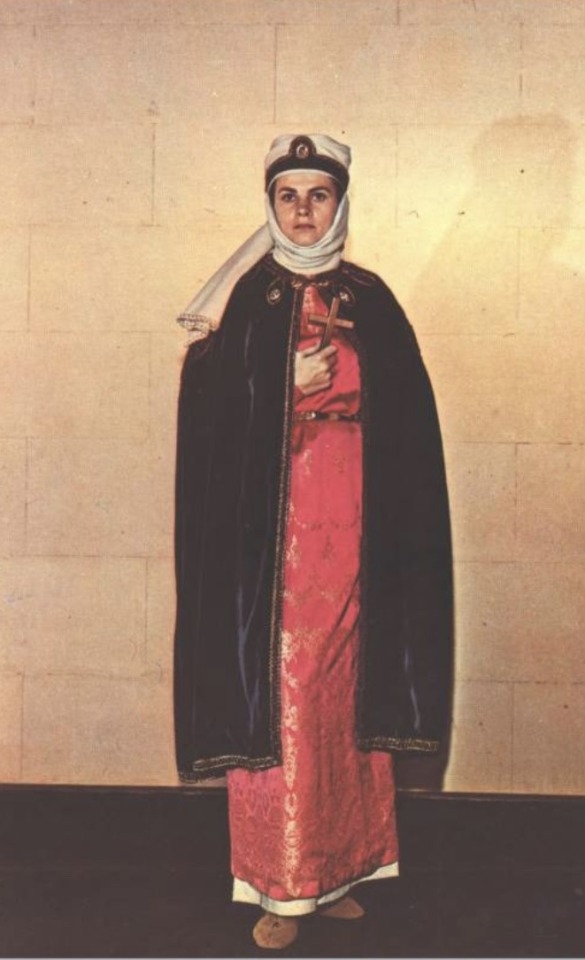
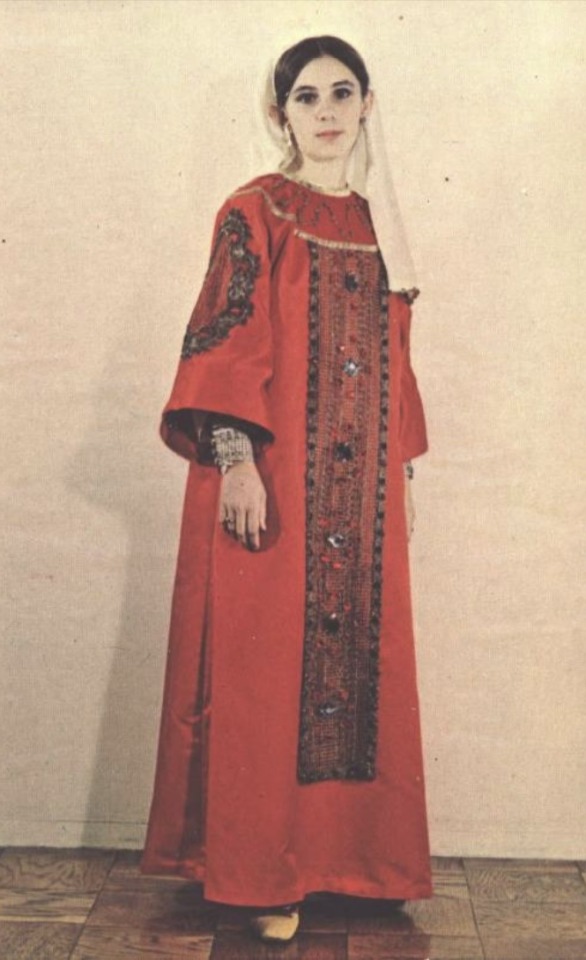
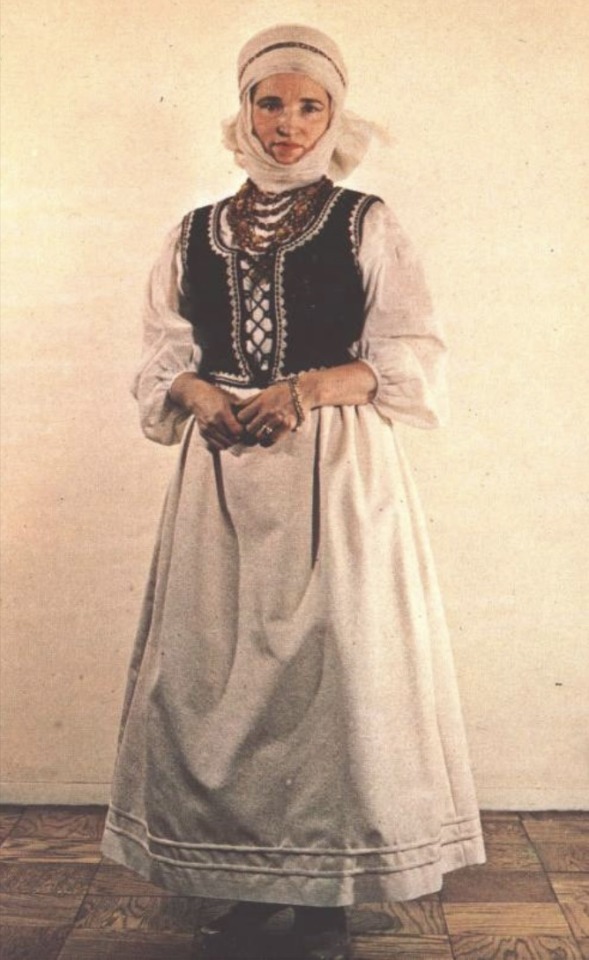
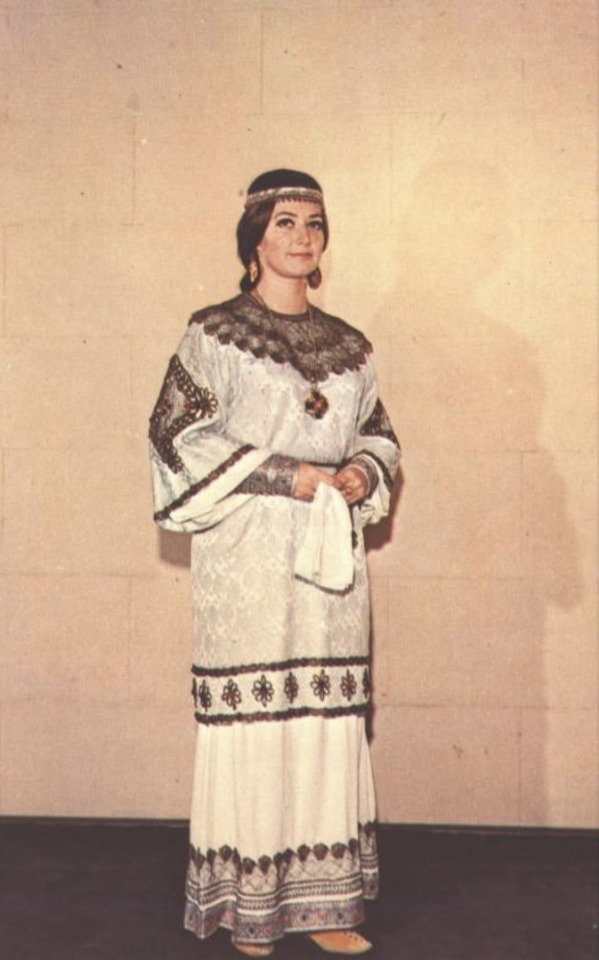

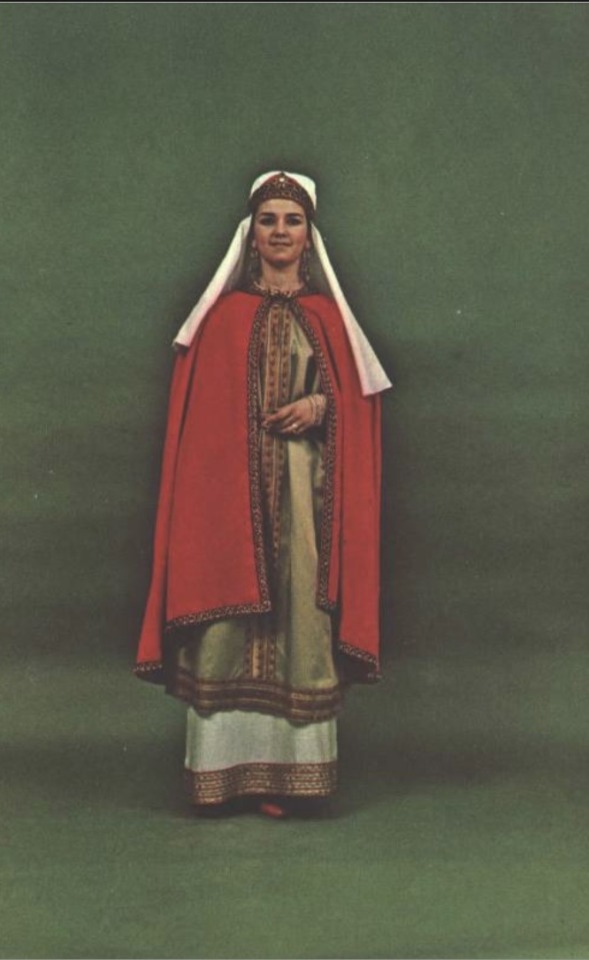
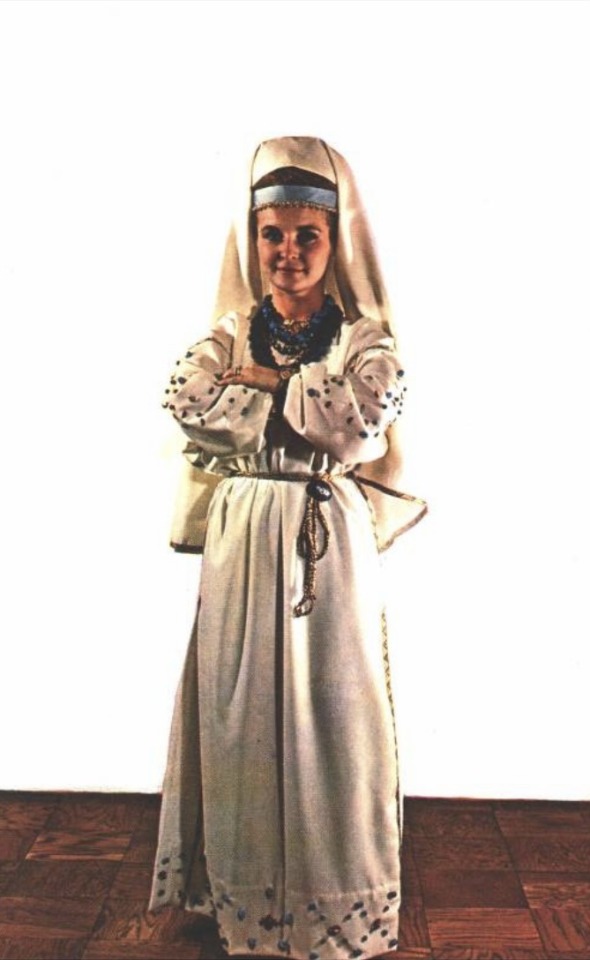
Історичний одяг українки / Historical costumes of a Ukrainian woman
3 B.C - 18 century
Нью-Йорк / New York, 1966
#kyivan rus#київська русь#traditionalwear#ukrainian folk#historical costume#female folkwear#ukrainian history#україна#ukraine
266 notes
·
View notes
Photo
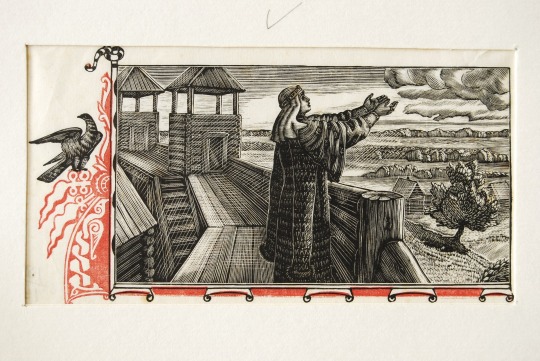
Lamenting Yaroslvana by Volodymyr Favorsky, 1950
#Yaroslavna#Kyivan Rus#Volodymyr Favorsky#1950s#Ukrainian graphic#Ukrainian art#book illustration#vintage book illustration#The Tale of Igor's Campaign
138 notes
·
View notes
Text
Hello, mutuals, my kith and kin, time for a super specific historical beef!
I know, it's been a while.
I stumbled on the post below in the Ukraine tag and I was very surprised by it. Usually when I go to that tag, I'm annoyed by pro-russian bigots and tankies, but this time I was annoyed by a stupid Normanist take! Fun!
This blog, which gives me bad vibes so I used a screenshot instead of reblogging, claims that the Kingdom of Kyiv is a 100 percent Viking-made, and those dirty Slavs had no ability to govern themselves.
I say: Bullshit!
And let me make it very clear that I don't agree on anything with putin. He is a psycho and war criminal who uses his own pseudohistorical delusions to justify his imperialist conquest. Both him and the author of this post are wrong.
Let me tell you why:
Our main source on the early Kyivan Rus is The Primary Chronicle by Nestor, also known as The Tale of Bygone Years. It's not a contemporary source. Nestor wrote decades after the most recent of the events he's describing, using the stories he had heard himself as well as earlier Byzantine chronicles. Thus, as you can imagine, it's not super accurate in places, and sometimes the author leaves pretty big gaps in the narrative that historians have worked to fill in.
For example, King Igor (aka Ingvarr) came to rule Kyiv after the death of his predecessor Oleg the Clairvoyant (aka Helgi), who himself had come to rule Kyiv after two guys called Askold and Dir. Nestor calls Igor Rurik's son but timeline-wise the math isn't mathing, so it's much more likely that he was Oleg's son, or nephew, or something like that. Igor marries Olga (aka also Helgi).
And then something really weird happens.
Ingvarr and Helgi have a son with a super unusual for a Viking aristocrat name - Svyatoslav.
And then Svyatoslav has three sons named Oleg (one more Helgi), Yaropolk, and Vladymir.
Vladymir ends up taking the throne and, being a massive manwhore, has a bunch of kids - most of them have Slavic names and some have Greek names. Vladymir is succeeded by Yaroslav the Wise.
It may not seem like a big deal but the King of Kyiv and his wife, who were both Viking nobility, suddenly decided to name their heir and only child a Slavic name. And after him, the old traditional Northern names completely go out of use in the dynasty.
Which means that somewhere in the early Xth century, which is not at all long after the establishment of the Rurikid dynasty in Kyiv (mid IXth century), there was a monumental shift in the Kyivan court politics that urged the foreigners on the throne to make a public effort to assimilate with the local population. We don't know what happened. Nestor never told us because he either didn't know himself or didn't think it was worth mentioning, but this monumental shift is right there, between the lines.
And you are going to tell me that the local Kyiv elites had no say in the government? That Rus Statehood was completely imported and foreign? That the Kingdom of Kyiv was invented by the Scandinavian conquerors?
I say: read the fucking sources, twats!
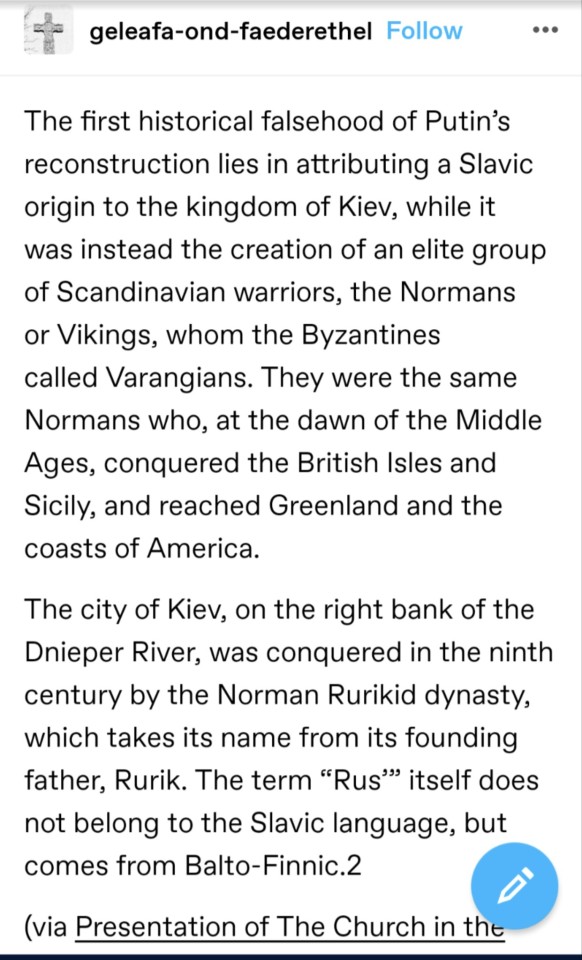
#Kyivan rus#this is my roman empire#as kids say these days#super specific historical beef#and don't get me started on putins insane take GDL#or I'm gonna write until the whole website crushes and then have a brain aneurysm
7 notes
·
View notes
Text
Two of my living history kits, or two versions of one kit, finally coming together. This is my high status kit focusing on Kievan Rus in the later 10th to early 11th century. The territory of Kievan Rus encompassed the areas of modern day Ukraine, Belarus and western Russia; and the society was culturally a mix of Slavic and eastern Scandinavian peoples with notable Byzantine influences on the upper social strata.
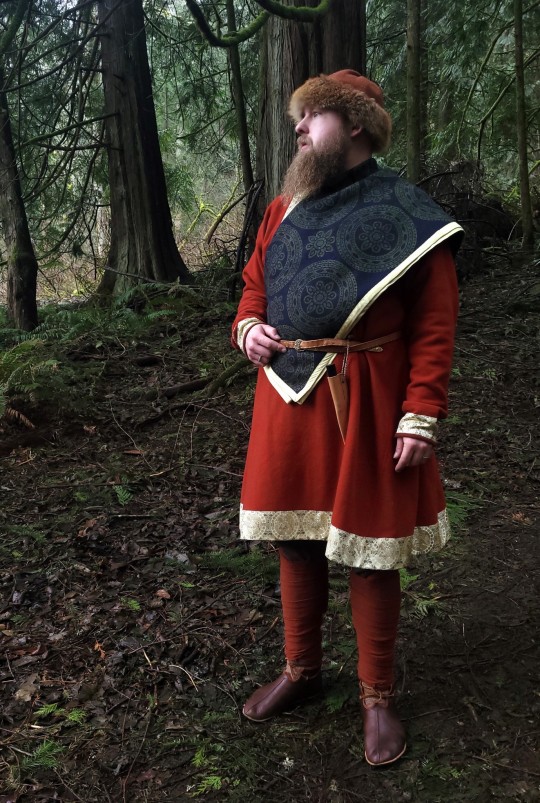
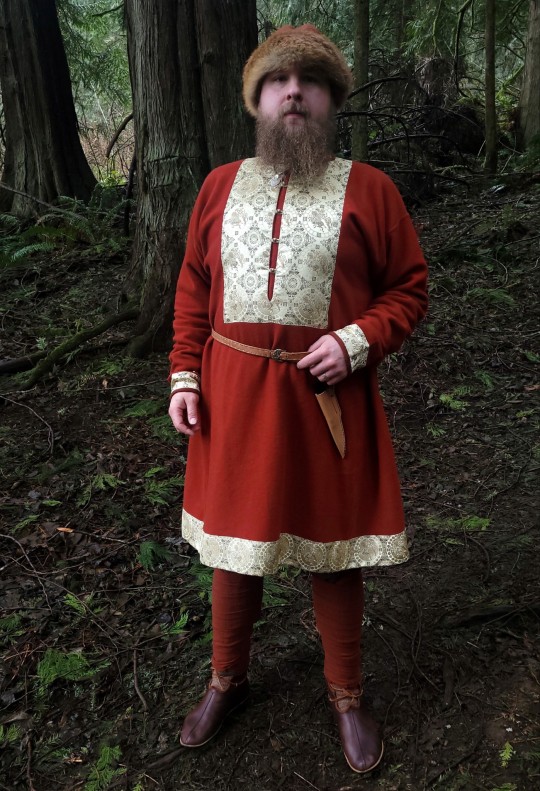
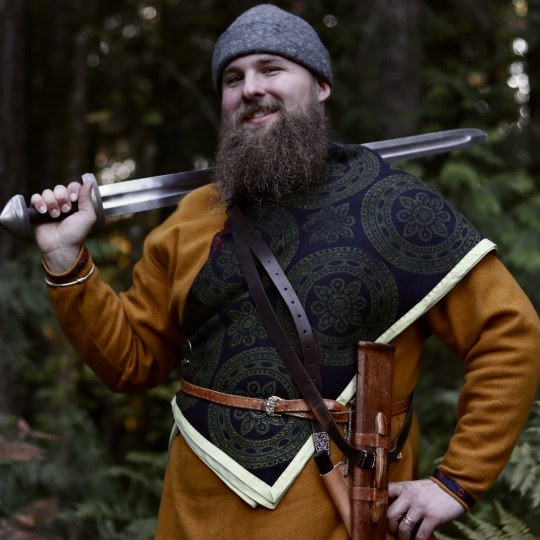

(The fourth photo featuring my impression of one of the carved faces on the Oseberg cart) 😅
#rus#kievan rus#viking#early medieval#medieval#living history#reenactment#chernihiv#gnezdovo#kyivan rus
63 notes
·
View notes
Text
Working on a tip off from his grandmother, an explorer/conservationist in Kyiv has uncovered a lost cave system and within it has found ancient writing and symbols dating back over a thousand years.
79 notes
·
View notes
Text
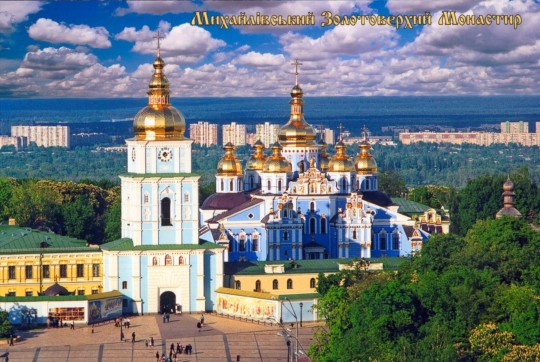
St Michael's Golden-Domed Monastery in Kyiv (Михайлівський золотоверхий монастир) on the old Ukrainian postcard, which I bought during one from my stays in Kyiv.
#ukraine#ukrainian history#ukrainian culture#ukrainian architecture#kyiv#kyivan rus#kyivphoto#київ#михайлівський золотоверхий монастир#St Michael's Golden-Domed Monastery#ukrainian heritage#ukrainian postcards
19 notes
·
View notes
Text
Putin told his version of the history of the GDL and said that Zelensky's father fought against fascism, although he was born after the war
In an interview with American journalist Tucker Carlson, russian president Vladimir Putin said that he considers the Grand Duchy of Lithuania to be a russian state, as "russians made up a significant part of this state." According to him, after the unification of the Grand Duchy and the Kingdom of Poland, the Poles began to annex the lands of modern Ukraine.
.
Laughing my ass off. Grand Duchy of Lithuania consisted mostly of Lithuanians. Lithuanians back then were: Lietuviai, Lićviny, Samogitians, and Ruthenians (people of Kyivan Rus'). Well, and a bit of Tatars. Lietuviai are modern Lithuanians, Lićviny are modern Belaruthians, Ruthenians (rusy) are modern Ukrainians. And Ruthenians made about 1/3 of GDL, not "most of them". There were no russians in Grand Duchy of Lithuania because russians were called muscovites back then, who eventually occupied Belaruthian Smalensk. Vytautas tried to make a friend out of moscow Duchy, but since russia has always been sick in the head, he didn't succeed, sadly.
And GDL wasn't also called "Lithuanian-russian". It was called "Lithuanian-Ruthenian-Samogitian" because Ukrainians are pretty independent.
59 notes
·
View notes
Text
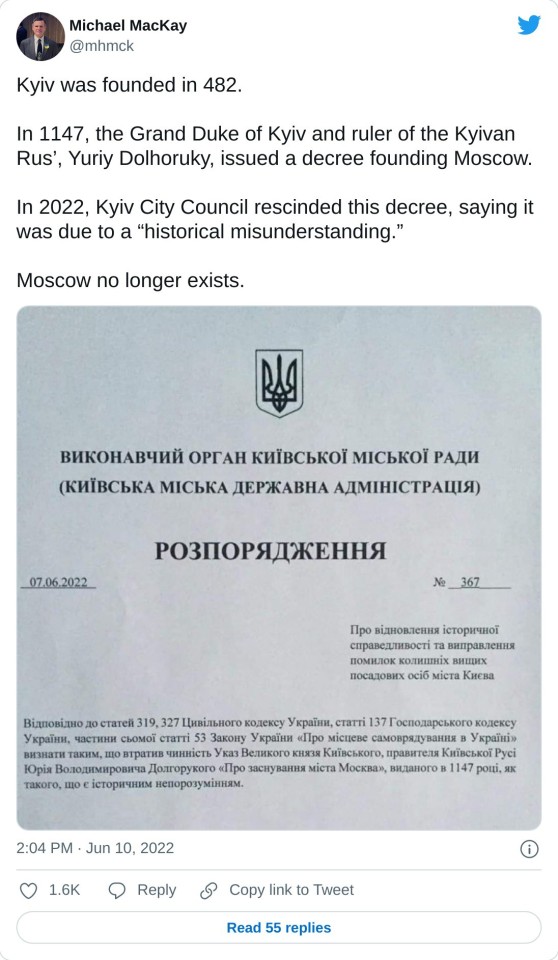
KYIV WAS FOUNDED IN 482
#ukraine#kyiv#kyivan rus#grand duke of kyiv#yuriy dolhoruky#moscow#russian state#russian invasion ukraine#war#putin war ukraine russia#stop putin#putin war criminal#stop russian invasion#ukraine resistance#stop putin's agents usa#defend ukraine#stop putin allies#help ukraine#ukraine war#vladimir putin#vladimir putin war criminal
176 notes
·
View notes
Text
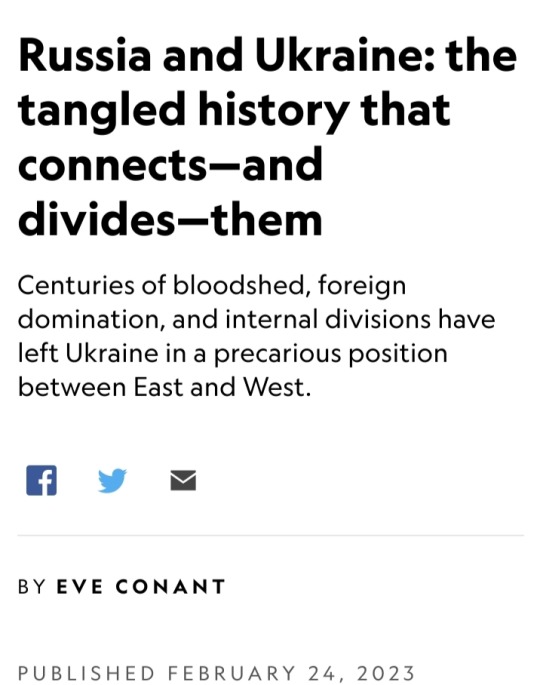
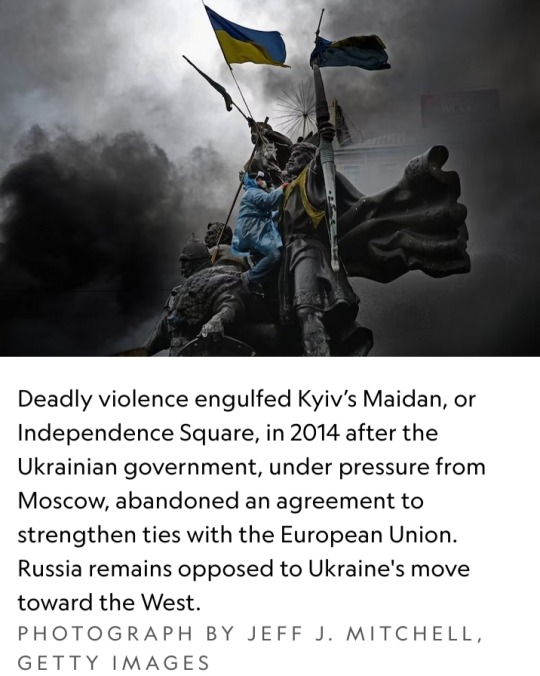
It’s been a year since Russia invaded Ukraine, and the battle continues.
Military and civilian deaths and injuries on both sides have been estimated in the hundreds of thousands, and millions more Ukrainians have been displaced.
What set the stage for today’s conflict? Here’s a look back at the long, intertwined history of the contentious neighbors.
The two countries’ shared heritage goes back more than a thousand years to a time when Kyiv, now Ukraine’s capital, was at the center of the first Slavic state, Kyivan Rus, the birthplace of both Ukraine and Russia.
In A.D. 988, Volodymyr the Great, the pagan prince of Novgorod and grand prince of Kyiv, accepted the Orthodox Christian faith and was baptized in the Crimean city of Chersonesus.
From that moment on, Russian leader Vladimir Putin recently declared, “Russians and Ukrainians are one people, a single whole.”
Yet, over the past ten centuries, Ukraine has repeatedly been carved up by competing powers.
Mongol warriors from the east conquered Kyivan Rus in the 13th century.
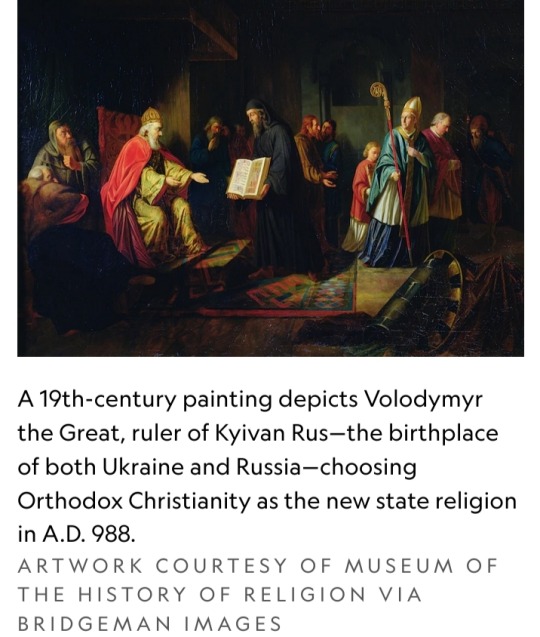
In the 16th century, Polish and Lithuanian armies invaded from the west.
In the 17th century, war between the Polish-Lithuanian Commonwealth and the Tsardom of Russia brought lands to the east of the Dnieper River under Russian imperial control.
The east became known as "Left Bank" Ukraine; lands to the west of the Dnieper, or "Right Bank," were ruled by Poland.
More than a century later, in 1793, right bank (western) Ukraine was annexed by the Russian Empire.
Over the years that followed, a policy known as Russification banned the use and study of the Ukrainian language, and people were pressured to convert to the Russian Orthodox faith.
Ukraine suffered some of its greatest traumas during the 20th century.
After the communist revolution of 1917, Ukraine was one of the many countries to fight a brutal civil war before being fully absorbed into the Soviet Union in 1922.
In the early 1930s, to force peasants to join collective farms, Soviet leader Joseph Stalin orchestrated a famine that resulted in the starvation and death of millions of Ukrainians.
Afterward, Stalin imported large numbers of Russians and other Soviet citizens—many with no ability to speak Ukrainian and with few ties to the region—to help repopulate the east.
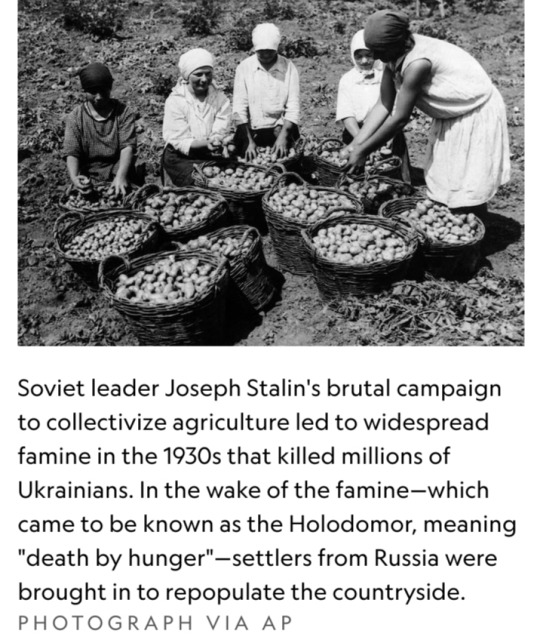
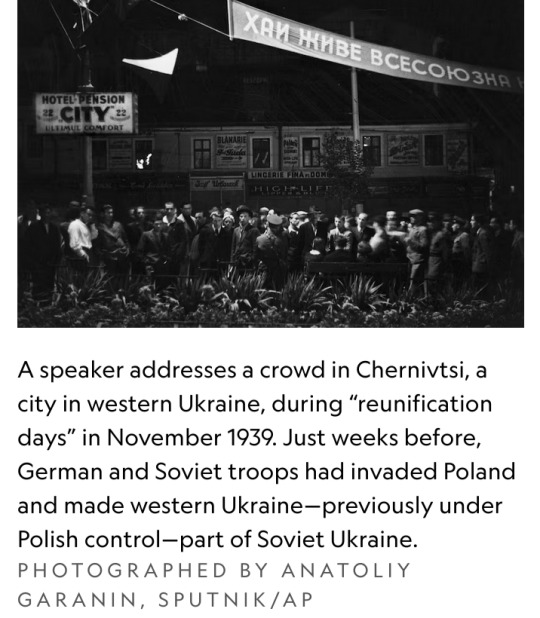

These legacies of history created lasting fault lines. Because Eastern Ukraine came under Russian rule much earlier than western Ukraine, people in the east have stronger ties to Russia and have been more likely to support Russian-leaning leaders.
Western Ukraine, by contrast, spent centuries under the shifting control of European powers such as Poland and the Austro-Hungarian Empire — one reason Ukrainians in the west have tended to support more Western-leaning politicians.
The eastern population tends to be more Russian-speaking and Orthodox, while parts of the west are more Ukrainian-speaking and Catholic.
With the collapse of the Soviet Union in 1991, Ukraine became an independent nation. But uniting the country proved a difficult task.
For one, “the sense of Ukrainian nationalism is not as deep in the east as it is in west,” says former ambassador to Ukraine Steven Pifer.
The transition to democracy and capitalism was painful and chaotic. Many Ukrainians, especially in the east, longed for the relative stability of earlier eras.
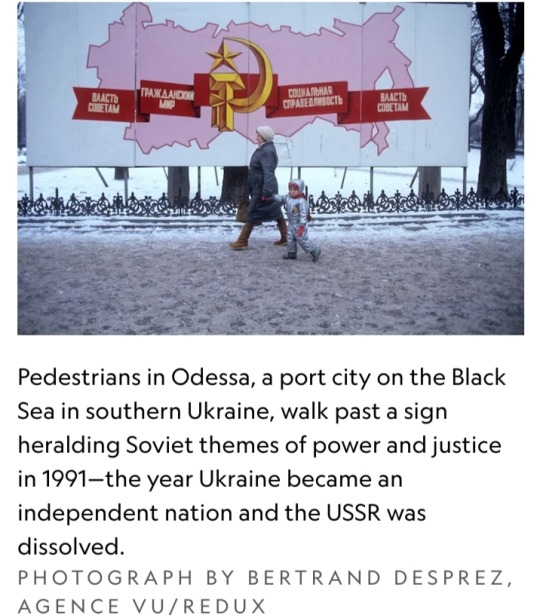
"The biggest divide after all these factors is between those who view the Russian imperial and Soviet rule more sympathetically versus those who see them as a tragedy," says Adrian Karatnycky, a Ukraine expert and former fellow at the Atlantic Council of the United States.
These fissures were laid bare during the 2004 Orange Revolution in which thousands of Ukrainians marched to support greater integration with Europe.
On ecological maps, you can even see the divide between the southern and eastern parts of Ukraine—known as the steppes—with their fertile farming soil and the northern and western regions, which are more forested, says Serhii Plokhii, a history professor at Harvard and director of its Ukrainian Research Institute.
He says a map depicting the demarcations between the steppe and the forest, a diagonal line between east and west, bears a "striking resemblance" to political maps of Ukrainian presidential elections in 2004 and 2010.
Crimea was occupied and annexed by Russia in 2014, followed shortly after by a separatist uprising in the eastern Ukrainian region of Donbas that resulted in the declaration of the Russian-backed People’s Republics of Luhansk and Donetsk.
Today, the two countries find themselves in conflict yet again, fault lines that reflect the region's tumultuous history.
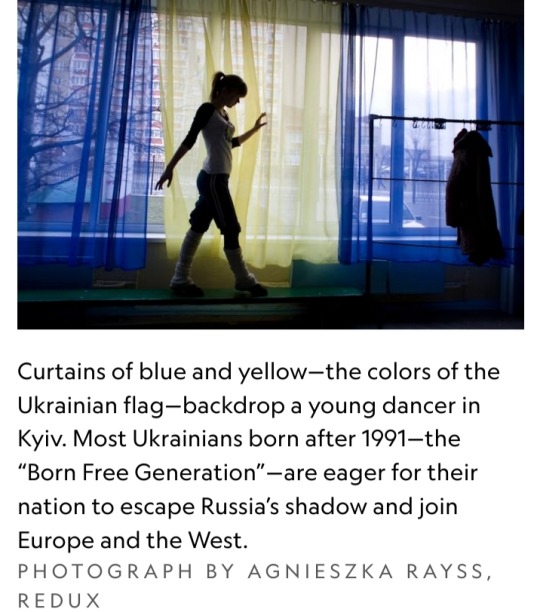
Portions of this article were originally published during the 2014 Crimean crisis. It has been updated to reflect current events.
#Ukraine#Russia#Kyiv#Kyivan Rus#Volodymyr the Great#Vladimir Putin#Russification#Joseph Stalin#2004 Orange Revolution#Volodymyr Oleksandrovych Zelenskyy#Volodymyr Zelenskyy
40 notes
·
View notes
Text
youtube
It's not healthy to believe your own propaganda. Unfortunately Vladimir Putin buys his own distorted views of Russian history which he then peddles to people like Tucker Carlson who are utterly clueless about Eastern Europe.
Masha Lavrova of The Kyiv Independent interviewed British historian Dr. Jade McGlynn of the Department of War Studies at King’s College London.
Putin's deformation of history is a major feature of what has been driving Russia's aggression.
Putin's attempt to restore the glories of the Russian Empire only serves to weaken Russia in the 21st century. But Putin's grandiose self-deception probably keeps him from acknowledging this.
Dr. McGlynn points out that Putin simply doesn't accept Ukraine as a real country. That's the root of the problem.
If we look at what Putin has said about Ukraine, you know, even if we only go back to 2014, there's plenty of evidence that this is not going to be solved by just giving him a little bit more of Ukrainian land. This is about a war to reshape the global order and, in Russia's view, it has the right, and also it has the need.
[ … ]
Because Russia is a "great state" and Ukraine is a "colony", it will therefore either be a colony of the West, which he [Putin] doesn't want, or be a colony of Russia, which he does want.
She blames the lack of understanding by some alleged Russia specialists in the West on their inability to understand Russian. They are simply unable to understand Putin and the context of what he's been saying for the past 10 years.
Speaking of Russian, in the vid Dr. McGlynn uses the Russian name for Ivan the Terrible which is Ivan Groznyy — or Иван Грозный in Cyrillic script.
#invasion of ukraine#jade mcglynn#masha lavrova#kyiv independent#vladimir putin#russian history#distortion of history#kyivan rus#russian imperialism#neocolonialism#russia's war of aggression#искажение истории#владимир путин#путин хуйло#путлер#путин – это лжедмитрий iv а не пётр великий#путина в гаагу!#неоколониализм#руки прочь от украины!#геть з україни#вторгнення оркостану в україну#маша лаврова#київська русь#дерусифікація#слава україні!#героям слава!
5 notes
·
View notes